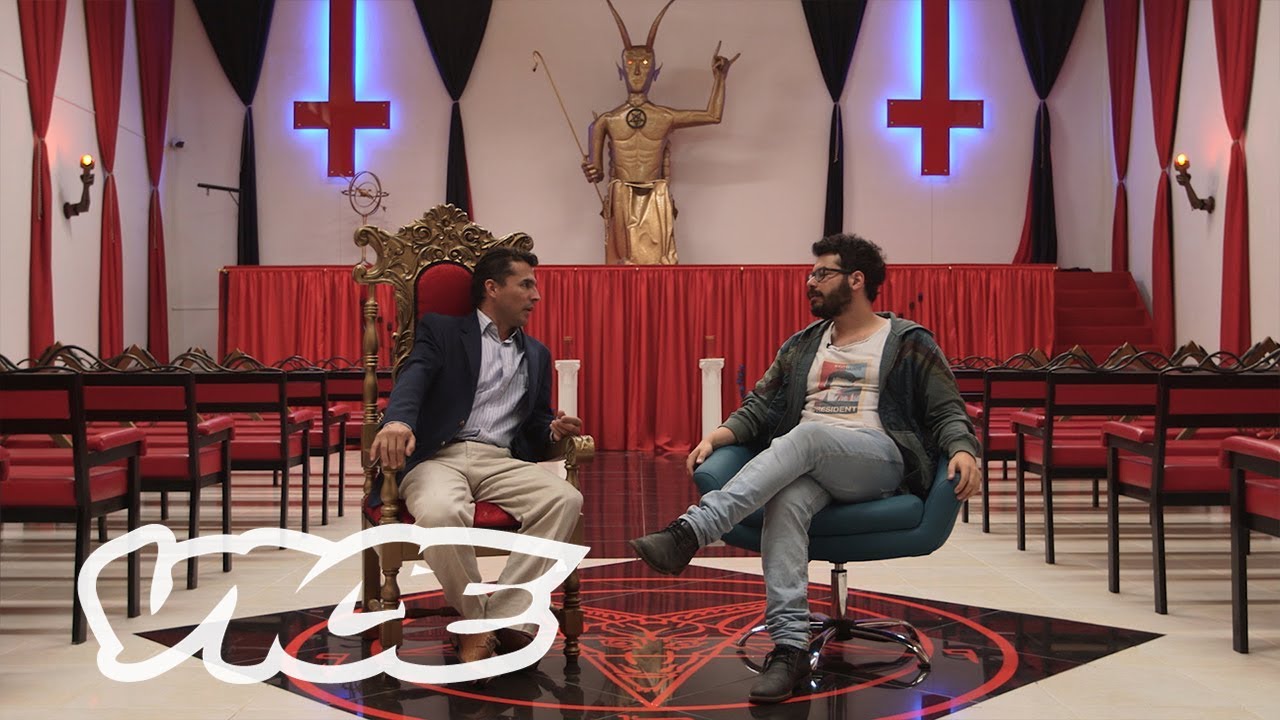
when Horror Yearbook – Lucifer Worship has shocked the predominantly Catholic nation of Colombia following the legal recognition of a controversial temple named Luciferian Seeds of Light Temple. Located in the remote town of Montenegro, Quindío, the structure drew attention after media reports revealed symbolic elements associated with Satanism such as inverted crosses and Baphomet statues. Despite its legal status, the temple remains under close government surveillance. The temple’s founder, Victor Damian Razo, who also goes by Hector Londoño Villegas, claims the teachings within do not promote Satanism. According to Razo, the worship is directed not at the devil, but at Lucifer, whom he describes as a fallen angel of light and peace. This distinction has stirred intense debate among authorities, clergy, and the public. Government officials and the Catholic Church view the symbols and rituals as disturbing and potentially illegal, even if the temple operates within legal frameworks.
Lucifer Worship, as defined by Victor Razo, represents not an allegiance to evil, but a spiritual rebellion against what he describes as manipulated truths. He portrays Lucifer as a figure of enlightenment, love, and self-discovery. In an interview with Semana, a Colombian magazine, Razo explained that his belief system encourages freedom of thought and challenges traditional dogmas. Critics argue that this philosophy is simply a rebranded form of Satanism, especially given the temple’s dark aesthetics and rituals. However, Razo asserts that the practices focus on finding inner truth, not on harm or demonic activities. Despite public concern, Razo believes that followers are merely exercising their spiritual rights. Symbolism inside the temple was reported by local media and has caused strong reactions from religious institutions. The idea that Lucifer can be worshipped as a benevolent being remains controversial and is considered deceptive by those within traditional religious frameworks.
“Read about: Unsolved and Terrifying: The Dyatlov Pass Mystery That Still Haunts Russia!”
The construction of the Luciferian Seeds of Light Temple cost approximately $200,000, an amount raised through donations from supporters worldwide. Razo revealed that the financial support arrived from various countries, suggesting a global network of followers or at least sympathizers. Funds were used not only to build the physical temple but also to maintain ongoing operations and gatherings. Despite being seen as a fringe movement, the temple’s existence was legitimized under Colombian religious freedom laws. Concerns have been voiced regarding the use of international funds for controversial religious practices. While supporters argue that the contributions reflect the right to spiritual expression, critics question the intentions behind the donations. Allegations have also circulated claiming that followers were promised material wealth or sexual gratification in exchange for loyalty. These claims, if true, could result in legal consequences. So far, no formal charges have been brought against the organization.
“Read more: Taco Bell’s 2000s Y2K Menu Is Here and Fans Are Obsessed with the Nostalgia”
Public reaction to the Luciferian Seeds of Light Temple has ranged from fear to outrage. In a nation where Catholicism is culturally embedded, the appearance of an institution openly practicing Lucifer Worship has naturally sparked controversy. Citizens have protested and urged local authorities to intervene. As a response, the government of Quindío and religious leaders have monitored the temple’s activities. According to Archbishop Pablo Emiro Salas, inverted crosses are not permitted under Colombian national law, yet they have been visibly present on the temple’s premises. Despite this, enforcement of religious symbolism remains legally complex due to freedom of religion protections. Government officials have stated that while the temple’s teachings do not violate criminal laws outright, the situation remains delicate. The debate continues between the need to respect religious freedom and the desire to protect traditional moral values. As of now, surveillance continues but no direct action has been taken.
The rise of alternative belief systems in Colombia, such as the one promoted by Victor Razo, reflects a growing global trend. Followers of Lucifer Worship seek empowerment through non-traditional spiritual frameworks. This phenomenon is not isolated to Colombia and can be seen in parts of Europe and North America as well. The upcoming Beelzebub congregation, rumored to be hosted by Razo, has raised further concern among religious communities. Critics argue that such gatherings encourage occultism and societal division, while defenders insist on the right to assemble and worship freely. The temple’s influence extends through online platforms, where Razo spreads his teachings to a wider audience. Colombian authorities have acknowledged the increasing impact of these movements but remain cautious in how they respond. As tensions rise, the broader conversation surrounding religious pluralism and freedom continues to evolve. Whether the temple gains more recognition or faces closure remains to be seen.